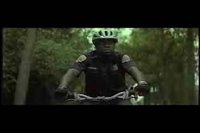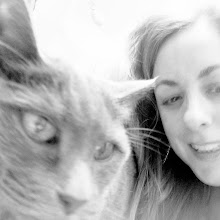 To commemorate the acceptance of Devor's third feature into the Sundance Film Festival, here's a profile I wrote in September.
To commemorate the acceptance of Devor's third feature into the Sundance Film Festival, here's a profile I wrote in September.
*****
"The only animal worth making
a documentary about is the human."
--Charles Mudede on March of the Penguins (2005)
Forget Mr. Ed, forget Equus. Seattle director Robinson Devor's upcoming documentary concerns what has become known locally as the Enumclaw Horse Case. Scheduled for release by THINKfilm in 2007, Zoo (formerly In the Forest There is Every Kind of Bird) draws inspiration from the poor unfortunate--part of a tight-knit ring--who died in 2005 from injuries sustained after engaging in carnal relations with said creature.
Devor confirmed his risk-taking rep with Police Beat (2005). Co-written by Charles Mudede, and based on his long-running crime column in The Stranger, the "blue and green" noir takes an impressionistic look at a week in the life of Senegalese bike cop "Z" (former Junior Olympic footballer Pape S. Niang). The dialogue is in English, Z's inner monologue is in Wolof.
Manohla Dargis of The New York Times proclaimed the Sundance Grand Jury Prize nominee "dreamily poetic." A DVD release is in the works.
So when did Devor, who grew up in New York, know he wanted to be a filmmaker? "I directed some theater when I was a junior in high school," he replies. He went to film school in Texas and spent 10 years in Los Angeles, also dabbling in music and poetry. While there, he befriended non-fiction auteur Michael Guccione (no relation to the plastic surgery-obsessed porn magnate). "We did a documentary on Angelyne, the billboard queen." Anointed "a knockout" by The Village Voice, the 1999 short received wide exposure on PBS--plus brisk video sales--and Devor was off.
He followed with The Woman Chaser (1999), which became a cult item the minute it hit the screen. In this devilishly funny Charles Willeford adaptation, Richard Hudson (Patrick "Puddy" Warburton), used car huckster and wannabe director, oozes his way through post-war Los Angeles--all in glorious black and white. Really, what's not to love? As The New Yorker enthused, it's "wicked and brilliant." Sadly, despite some theatrical and cable action, the stylish noir has not yet made its way to DVD.
While in Seattle to promote his first feature, Devor "totally fell in love" with the city and relocated from California. Ensconced in the Northwest for five years now, he seeks to excavate, as with Police Beat, more of the region's deepest, darkest secrets--which brings us to Zoo. Why this particular secret, I wondered. Well, the filmmaker sees his role like this: "Somebody shows you a new world, and what you're trying to do is find entrance to that world."
In his second collaboration with Mudede, Devor delves into an obscure subculture--openly, but with respect. He doesn't disclose the name of the deceased, a 45-year-old aerospace engineer, but the words of his compatriots (identified by email handles) contribute to the narration. Mostly, he raises questions--about bestiality, sodomy, animal cruelty, desire and humiliation. As in the "ecstatic truth" documentaries of Werner Herzog, fact and fiction co-mingle. "It's a big challenge," he readily acknowledges, but the goal is the same: To explore what it means to be human.
 Endnote: This profile was originally written for a publication that pulled the plug due to discomfort with the subject matter. Consequently, it doesn't currently have a home, so thank goodness for blogs. I'm sorry if the topic of Devor's new film makes some people uncomfortable, but I think his track record confirms that exploitation is not his aim. When I have time, I'll transcribe the entire interview and post it to Seattle Film Blog. Images from The Stranger's Slog.
Endnote: This profile was originally written for a publication that pulled the plug due to discomfort with the subject matter. Consequently, it doesn't currently have a home, so thank goodness for blogs. I'm sorry if the topic of Devor's new film makes some people uncomfortable, but I think his track record confirms that exploitation is not his aim. When I have time, I'll transcribe the entire interview and post it to Seattle Film Blog. Images from The Stranger's Slog.

No comments:
Post a Comment